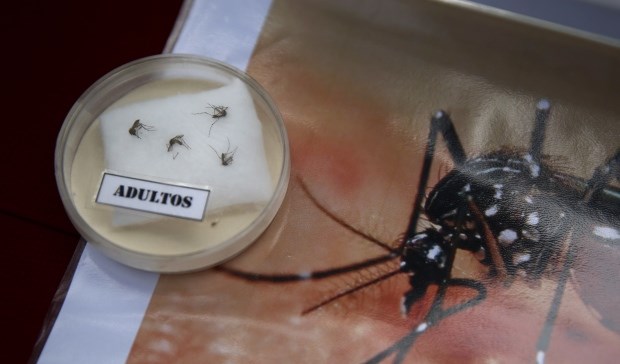Thailand raises alert level in Zika spread
Thailand’s Department of Disease Control (DDC) on September 14 instructed all 12 Emergency Operation Centres to increase their alert level to level two amidst the spread of Zika virus epidemic.
 Illustrative image (Photo: cba.ca)
Illustrative image (Photo: cba.ca)Dr. Amnuay Gajeena, Director of the DDC said that the decision was made after a meeting between DDC officials and the Office of Disease Prevention and Control (ODPC).
He said that the Ministry of Public Health has instructed all subordinate agencies to implement measures to monitor, prevent and control Zika, including the research on Zika and habits of the type of mosquito transmitting the virus.
Each regional level ODPC office is expected to become a regional coordination office for disease prevention, while 10 percent of ODPC staff will be mobilized to join emergency response activities.
On September 13, Ministry of Public Health announced that approximately 200 Zika cases had been reported in the country since January, making Thailand among the countries with the highest rate of Zika infection in the region.
Meanwhile, Singapore’s National Environment Agency (NEA) announced on September 14 that 8 more Zika cases had been found. Singapore has recorded 341 Zika cases since August 27.
According to the NEA information, there are seven disease outbreaks in Singapore, with major ones near Aljunied Crescent, Sims Drive , Kallang Way and Paya Lebar Way.
The NEA urged the public to implement five steps to deal with mosquitoes to prevent the multiplication of Aedes aegypti mosquito that spreads Zika.
The steps include changing water in vases, turning all water containers upside down, turning over soil to prevent puddles forming, tidying rain gutters and spraying pesticides on a monthly basis.
The Zika virus is transmitted to humans primarily through Aedes aegypty mosquito bites and sexual intercourse.
The symptoms of Zika infection include fever, conjunctivitis, headaches and muscle pains. Zika infection during pregnancy may lead to microcephaly in children, which is responsible for incomplete brain development and an unusually small head.
A vaccine for the Zika virus has yet to be discovered.-VNA












